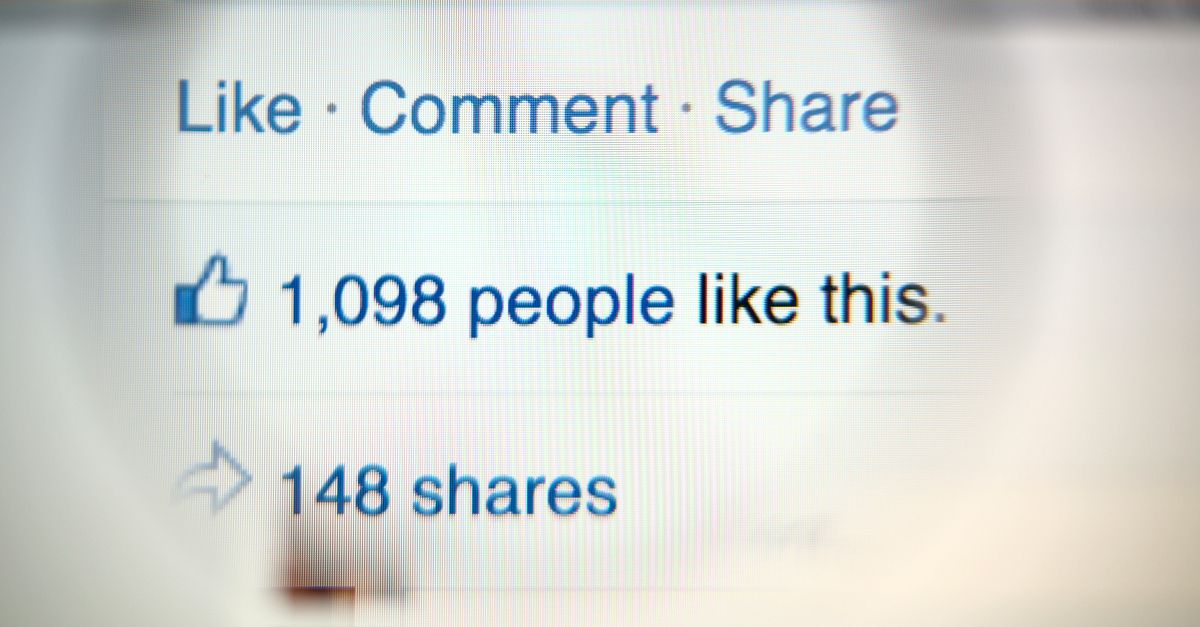A psychometrics company that has been banned by Facebook for improperly acquiring and deploying user information in the lead-up to the 2016 presidential election has a half-million dollar contract with the U.S. Department of State to research terrorist recruitment and radicalization, according to State Department officials.
According to a State Department spokesperson, the Global Engagement Center (GEC) contracted with the Strategic Communications Laboratories (SCL) Group, the London-based parent company of Cambridge Analytica, to "conduct audience analysis and research to better understand ISIS recruitment and radicalization to violence." As of 20 March 2018, the yearlong contract is winding down, even as Cambridge Analytica comes under scrutiny for tactics used to help secure a long-shot electoral victory for United States President Donald Trump.
According to public information and the spokesperson, the State Department contracted with SCL between February of 2017 and February 2018, paying $496,232 for a project involving more than a hundred "qualitative in-depth, in-person interviews with potential terrorist recruits, returned foreign terrorists, and terrorist recruiters." The interviews were voluntary and took place primarily in the United Kingdom — the State Department "did not fund any work by SCL conducted in the United States or using personal data from social media platforms."
On 16 March 2018, Facebook announced that SCL and Cambridge Analytica had gained access to American users' data without their consent in 2015; they were subsequently banned from the platform amid a firestorm of controversy, and after Facebook officials learned that the data had not been deleted upon their request.
Cambridge Analytica and SCL Group came under fire after whistleblower Christopher Wylie revealed that former Breitbart and Trump campaign executive Steve Bannon used the firm as a "psychological warfare tool." Britain's Channel 4 revealed through a four-month investigation culminating in a series of short documentary videos that the firm engaged in practices like attempting to compromise political rivals using prostitutes, manipulating the behavior of voters in key geographical areas by using data mined from their Facebook profiles, and anonymously feeding toxic and misleading information into the "bloodstream" of the Internet without leaving any identifiable traces of branding.
Speaking on the "Today" show on 18 March 2018, Wylie cautioned that a key Cambridge Analytica operative, psychologist Aleksandr Kogan, has links to the Russian government:
I think what's really important for people to understand is that this company misappropriated data of upwards of 50 million people from Facebook. They misused that data. That data was processed by a psychologist who was going back and forth between London and Russia, who were also working on projects in Russia for the Russians. That this company was using this data, meanwhile as it was talking to the second largest oil company of Russia, sending work that I was doing to the CEO of [U.S.-sanctioned] Lukoil which has known links with the Russian FSB which is their state security services. I think we need to step back for a second and and depoliticize this because this is about the safety of Americans and the integrity of the American democratic process.
According to Facebook, Kogan accessed data of 270,000 users when they downloaded an app he developed called "thisisyourdigitallife," then passed the information he gathered to Cambridge Analytica and SCL group. The app also enabled access to information on the profiles of those users' friends.
A Department of Justice team led by Special Counsel Robert Mueller is investigating whether Trump campaign officials colluded with the Russian government to intervene in the 2016 presidential election, and the Cambridge Analytica scandal has raised questions about whether the data firm's activities overlap with Russian meddling.
Andrew Weisburd, non-resident fellow at the Alliance for Securing Democracy (a bipartisan, transatlantic initiative housed at the German Marshall Fund of the United States) and one of the researchers behind Hamilton68, a real-time tool that tracks Russian influence operations on Twitter, told us, "It does raise questions, but answers are works in progress."
Counter-terrorism expert and veteran U.S. intelligence officer Malcolm Nance told us he has long believed there is a more-than-coincidental relationship between revelations about Cambridge Analytica's election-related activities and the dissemination of Kremlin disinformation that saturated the Internet and crowded news cycles in the run-up to the election:
I have always believed that Cambridge Analytica was the data bridge between Russian intelligence and WikiLeaks.
United States intelligence agencies believe that the Kremlin leveraged WikiLeaks to release hacked e-mails from the Democratic National Committee in the summer of 2016. Cambridge Analytica's now-former chief executive, Alexander Nix, and WikiLeaks founder Julian Assange both confirmed in late 2017 that Nix had aides approach Assange and ask if he would share information with his firm.
According to a sweeping 37-page grand jury indictment signed by the Special Counsel, thirteen Russian nationals acting under the aegis of the St. Petersburg-based firm Internet Research Agency (IRA) exploited divisive social issues by posing as American activists, reaching a significant number of voters by purchasing social media ads, creating political groups and events, and even going so far as contacting real Americans and convincing them to help plan and participate in those events.
Facebook ads purchased by the Russians were meant to sow discord and division throughout the political spectrum. Topics ranged from anti-immigrant and anti-Muslim themes to Black Lives Matter and pro-police pages. Different pages were devoted to disparaging both Trump and his rival, Democratic candidate Hillary Clinton. However, the ultimate goal of the IRA operation, according to the indictment, was to damage Clinton's campaign to help Trump.
Nance said he believes Cambridge Analytica provided Russian intelligence "precision input" and the Internet Research Agency then used that information to target Facebook users:
Whether they did it wittingly or didn’t care, Cambridge Analytica provided the precision input that Russian intelligence and IRA would tailor right down to the individual.
The State Department has yet to provide a copy of the contract in response to an August 2017 Freedom of Information Act request by Snopes.com.
